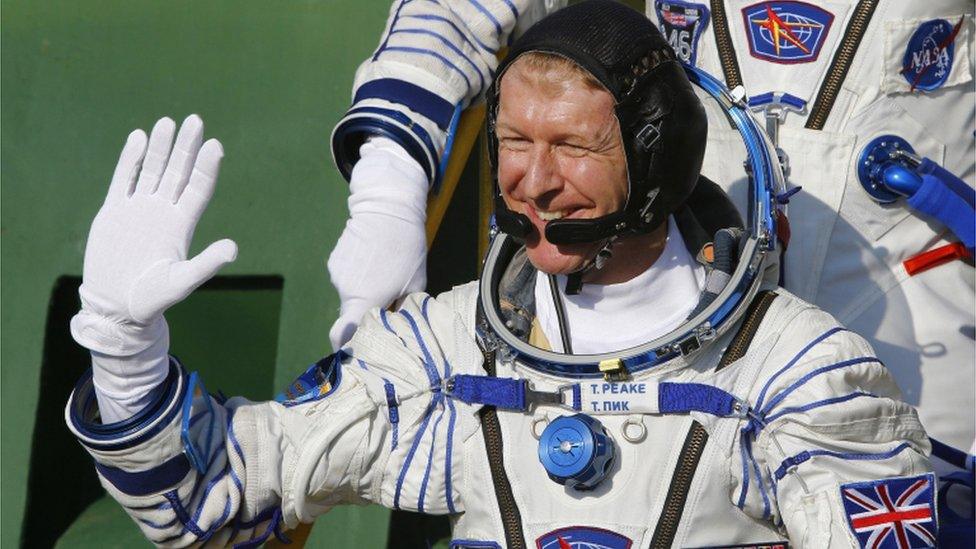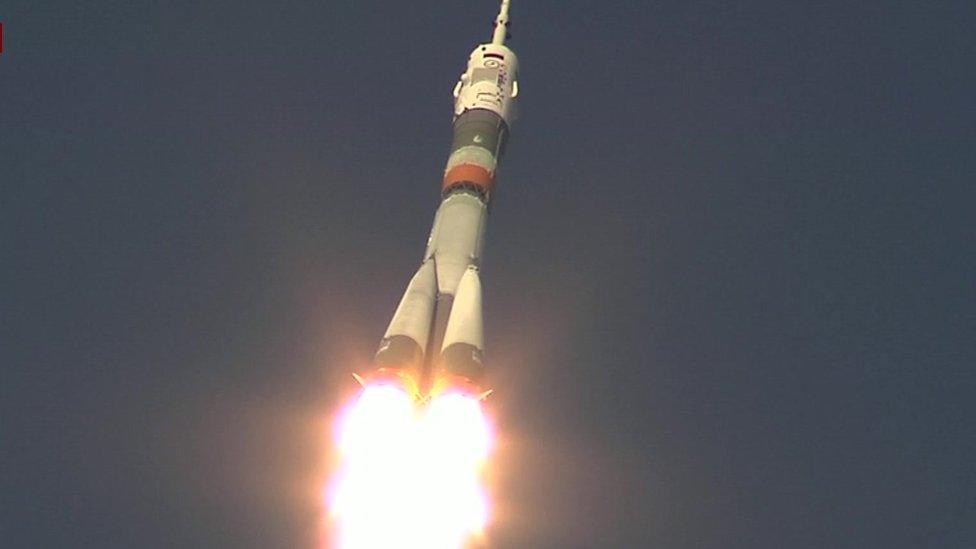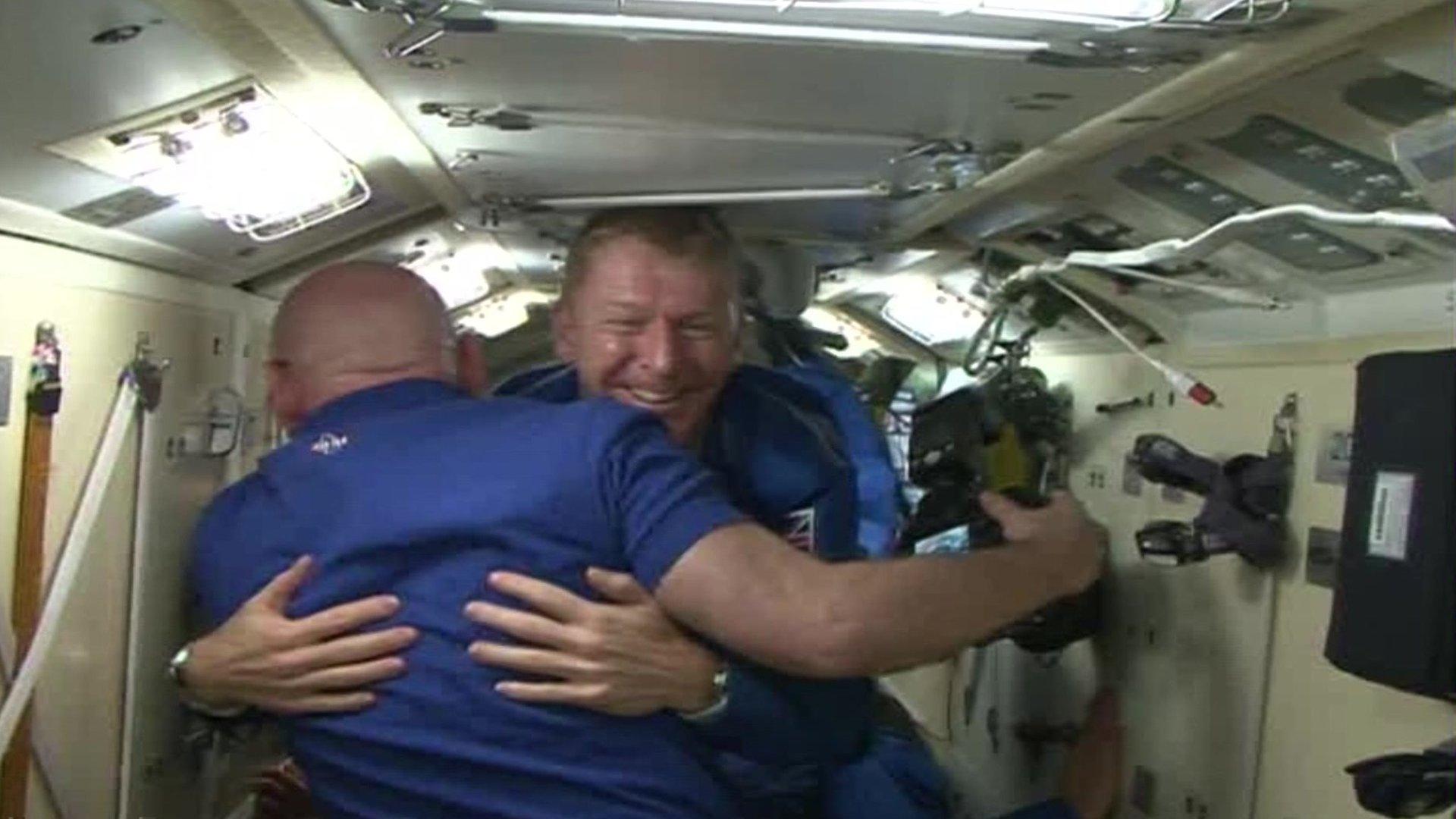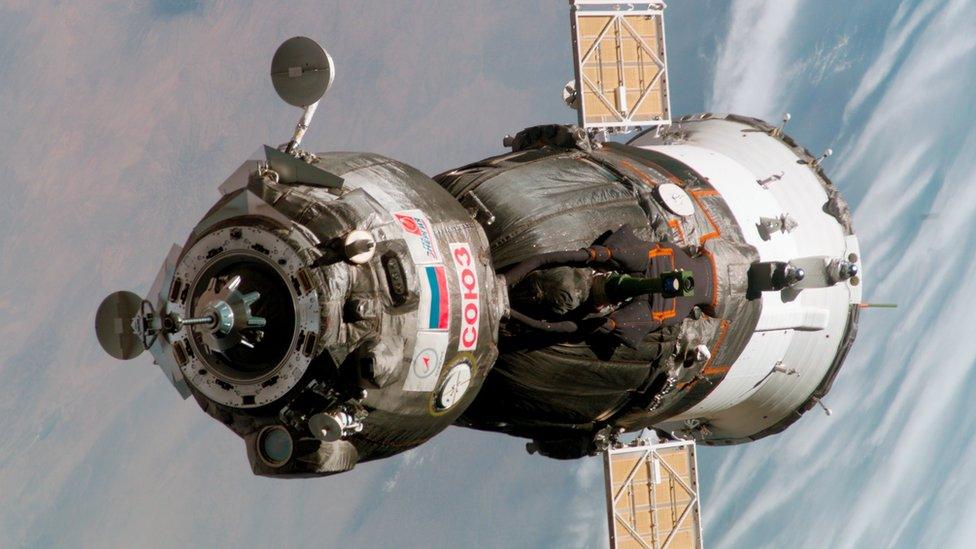Peake: What Tim's space flight means for Britain
- Published

Tim Peake preparing to go into space
There was a time when the UK government scoffed at the thought of human space flight. Sending people into space was too expensive, indulgent and, frankly, what was the point?
This view prevailed in Whitehall for decades.
How times have changed.
Tim fever has gripped the nation, as the first "official" British astronaut leaves Earth for a six-month stay on the space station.
The government chose to publish its first National Space Policy on Sunday too - two days before Tim's launch.
That might leave some people thinking that the UK was a relative newcomer to all this.
But, as the policy document points out, the UK already has a world-leading space sector worth £11.8bn - based around satellite infrastructure and services.
We do unmanned very well indeed, but human space flight is a new beast. How it will fit into this existing landscape is the big question.
'Wow' factor
David Willetts is the former science minister who was responsible for the policy change, and could therefore be regarded as the architect of Tim's mission.
Standing at the launch pad where the space race began, he told me: "It's been a long journey from those negotiations with he European Space Agency in 2012. That's when I changed the policy and we moved into participating in manned missions.


Tim Peake in space: Want to know more?
Tim Peake live, external: Launch day live video and updates
Special report page: For the latest news, analysis and video
Video: How the view from space affects your mind
Explainer: The journey into space
Social media: Twitter looks ahead to lift-off

"The fact (Tim is) going to do some great science while he's up there has justified that decision."
Mr Peake will carry out 265 experiments during the six-month mission known as Principia, after the celebrated text by Sir Isaac Newton.
The UK space agency says the programme of science will help increase the country's competitiveness in areas such as medical research, materials and plasma physics.
Opponents of manned flights will no doubt want to hold them to their word. The most vociferous critics of missions like Tim's say that microgravity research largely helps further human space flight rather than endeavours on the ground.
They baulk at the lists drawn up by agencies like NASA of spin-off technologies - like memory foam or freeze dried food- derived from manned space flight and argue that we can do better science, more cheaply, with robots.

But there's another rationale behind Tim's mission. He is engaging in a programme of activities designed to encourage more young people to take up STEM (science, technology, engineering and maths) subjects in education.
Success on this front will be measured: a team of researchers will try to quantify the "Tim effect" over the course of two years.
One advocate of human space flight told me that they welcomed such data gathering, confident that it would give the community ammunition for continued funding by government.
Some even argue that the effects of Tim's flight on students should be researched for more than a decade.
Dr David Parker, chief executive of the UK Space Agency, was positive about the mission: "It's massive for the UK space agency. It's the thing we've been working for and dreaming about for a very long time. It signals the UK rejoining the whole of the international space community," he said.
On whether the UK could sustain its involvement in human space flight beyond Tim's mission, he said it was "too early" to say for sure.
"It's certainly what we'd like to happen. We need to see the impact from this project.
"As well as Tim's mission, there's the science that's going to happen on the space station even after Tim comes back - and there's technology being built in the UK that will go on the ISS in a few years' time."
But intrinsic to human missions is a "wow" factor that's difficult to quantify, yet easy to underestimate.
It's an emotional rather than logical desire to experience the great expanse beyond our atmosphere in a way that sending robots can't satisfy.
Other countries have long standing commitments; but we'll have to see whether the UK's love affair with the right stuff can go the distance.
- Published15 December 2015

- Published16 June 2016

- Published7 December 2015

- Published9 December 2015
